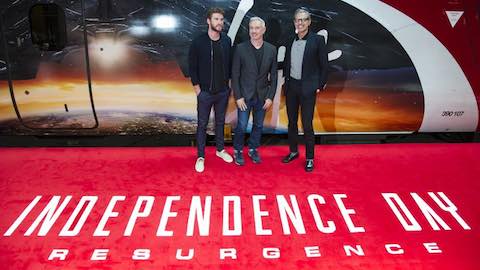- MENU
- HOME
- SEARCH
- WORLD
- MAIN
- AFRICA
- ASIA
- BALKANS
- EUROPE
- LATIN AMERICA
- MIDDLE EAST
- United Kingdom
- United States
- Argentina
- Australia
- Austria
- Benelux
- Brazil
- Canada
- China
- France
- Germany
- Greece
- Hungary
- India
- Indonesia
- Ireland
- Israel
- Italy
- Japan
- Korea
- Mexico
- New Zealand
- Pakistan
- Philippines
- Poland
- Russia
- South Africa
- Spain
- Taiwan
- Turkey
- USA
- BUSINESS
- WEALTH
- STOCKS
- TECH
- HEALTH
- LIFESTYLE
- ENTERTAINMENT
- SPORTS
- RSS
- iHaveNet.com: Movie Reviews

Hollywood has turned into a summer blockbuster machine, with a more reliable parade of hits than ever. There's just one problem...
The concept of the "summer blockbuster" originated in the 1970s with movies like Jaws and Star Wars. These films were big, exciting, and drew huge crowds to theaters. Over time, the idea of the summer blockbuster became a staple of Hollywood's business model, with studios releasing their biggest and most expensive films during the summer months when people were more likely to go to the movies.
However, in recent years, the summer blockbuster has become increasingly formulaic and predictable. Many of these films are big-budget sequels, remakes, or adaptations of existing properties, with little originality or creativity. They are often focused on spectacle and special effects, with shallow characters and weak storytelling.
One reason for this is that Hollywood studios are increasingly risk-averse. With the high cost of making and marketing movies, studios are hesitant to take chances on original concepts or unproven filmmakers. Instead, they rely on established franchises and familiar brands to ensure box office success.
Another factor is the global box office. While the summer blockbuster used to be primarily focused on the American market, it now has to appeal to audiences around the world. This has led to a focus on big, bombastic action scenes and less emphasis on character development or nuanced storytelling, as these elements may not translate as well to international audiences.
Another reason for the decline of the summer blockbuster is the rise of streaming services like Netflix and Amazon Prime Video. These services offer an alternative to traditional movie-going, with a wide selection of films and TV shows available to watch at home. As a result, some people are choosing to stay home and stream content rather than go to the theater to see a big-budget blockbuster.
Additionally, the COVID-19 pandemic had a significant impact on the movie industry, including the summer blockbuster season. With theaters closed or operating at reduced capacity, studios had to delay or cancel the release of many high-profile films. Some studios have also opted to release films directly to streaming services, bypassing the traditional theatrical release altogether.
Despite these issues, Hollywood studios continue to make and release summer blockbusters, as they are still one of the most reliable sources of revenue for the industry. While there are certainly exceptions to the trend, the overall state of the summer blockbuster has left many moviegoers feeling disillusioned and disappointed.
Some in the industry remain optimistic that the summer blockbuster can evolve and remain a relevant part of the movie landscape. Some studios are experimenting with new distribution models, such as simultaneous theatrical and streaming releases, to reach a wider audience. Others are focusing on diverse and inclusive storytelling, which can attract new audiences and create more meaningful connections with viewers.
Ultimately, the future of the summer blockbuster will depend on the ability of Hollywood to adapt and innovate. While there will always be a place for big-budget spectacle and action, it may be necessary for the industry to embrace new approaches and ideas to keep audiences engaged and excited about going to the movies.
Movies & Movie Reviews: How the Summer Blockbuster Got Worse and Why Hollywood Doesn't Care